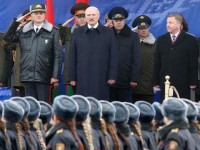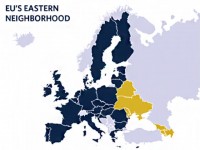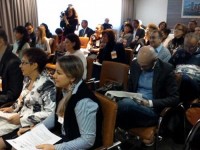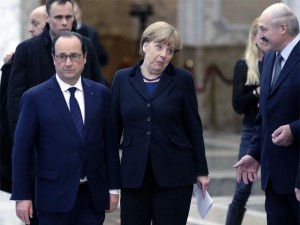Minsk’s muddled media clampdown could jeopardize warming of relations with the West.
Andrei Yahorau: We still have time to influence the report on Belarus

On July 9, 2013 the European Parliament’s Foreign Affairs Committee approved a report on the situation in Belarus. What has changed and what is to become with 292 amendments to the document?
These questions EuroBelarus Information Service addressed to Andrei Yahorau, political scientist and the head of the Centre for European Transformation:
— It should be noted right away that the hearings were not aimed at finding out whether to adopt the report or not, but rather whether it is worth considering at a plenary session of the European Parliament in September. I.e. for now no amendments were adopted. It was a working discussion of the report by the European Parliament’s Foreign Affairs Committee.
— Will the amendments be discussed in September?
— Yes. These 292 amendments to the report on situation in Belarus are available from the middle of June on open access and all persons interested can see what proposals were suggested by deputies and what Justas Paleckis himself has changed in an earlier submitted report. But this is what usually happens, when a small framework report is submitted to be amended by other factions and other deputies later on.
— Does it mean that the statement concerning the amendments in the report on human rights situation in Belarus is ultimate?
— It means that Justas Paleckis has rejected previous statements in this report. However, new version will be adopted no earlier than voting takes place. But the fact that a lot of new things appeared in the amendments is for some reason neglected.
— What amendments do you consider to be most striking?
— Well, there are 292 of them; some of them more radical, some of them less; some of them contradict the other amendments. Among the most urging issues is the problem of involving Belarusan authorities in the EU programs. There are also statements that welcome consolidation of Belarusan opposition before the future presidential elections. Some amendments concern the problem of economic sanctions, which are said to result in privatization of Belarusan enterprises by Russia. All in all, the areas touched upon by the amendments cover such spheres as human rights, economy, politics, relations with the EU and statement about the current situation.
— Is there any sense in reacting to the activity of European Parliamentarians before September, when the report will be considered at a plenary session of the European Parliament?
— Now it is just the right time to discuss the amendments, as it is a good possibility to influence the way they pass and to change the mood of the European deputies and their understanding of the situation in Belarus. Nowadays everyone is coming down on Justas Paleckis, although he has just launched the preparatory procedure, and Foreign Affairs Committee has supported it. It means that European Parliament will anyway adopt the proposals concerning EU policy towards Belarus; but what these proposals are going to look like depends on the voting procedure rather than on Justas Paleckis.
Others
-
In Belarus, a rising fear: Will we be the next Ukraine?
The relationship between Russia and Belarus has never been an easy one. The two former Soviet republics have spent the last two decades on a roller coaster ride — sometimes allies, sometimes adversaries in heated public rows.
-
The EU’s Benign Neglect of Eastern Europe
Between November 6 and December 11, 2015, Carnegie Europe continued its Capitals Series. In this second phase, the focus was on the EU’s Eastern neighbors, which the bloc has so often zigzagged over in trying to establish a coherent policy toward them collectively or bilaterally.
-
New ENP and Civil Society’s Role in Focus of the 7th EaP CSF Annual Assembly (Photo)
The 7th Annual Assembly of the Eastern Partnership Civil Society Forum was held in Kyiv on 19-21 November attracting around 300 participants, observers and guests who attended more than 20 sessions and a Networking Fair in the framework of the Assembly.
-
Is social economy a phenomenon for Belarus?
The conference “Social economy: how to be successful despite the crisis” launched in Minsk on October 22.








Comments
From farewell to a new Eastern policy and towards a new development
Poland and Germany were both initiators and drivers of a New Eastern policy linked to the Eastern neighborhood and Russia/Soviet Union.